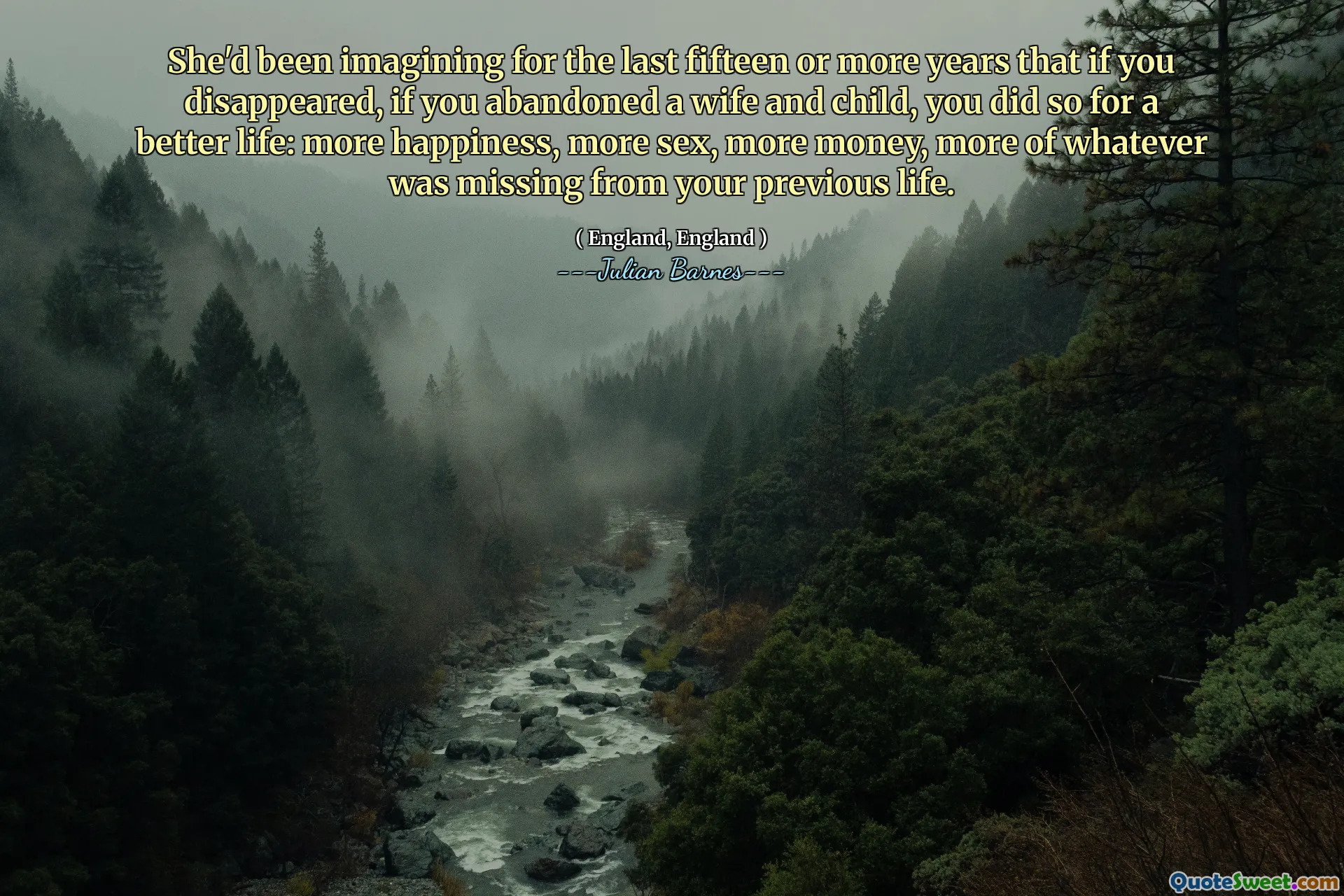
She'd been imagining for the last fifteen or more years that if you disappeared, if you abandoned a wife and child, you did so for a better life: more happiness, more sex, more money, more of whatever was missing from your previous life.
This quote deeply explores the painful rationalizations individuals construct to navigate the complex emotions surrounding abandonment and betrayal. It highlights the human tendency to ascribe positive motives, however tenuous, to actions that cause hurt and fracture familial bonds. The character has spent over fifteen years contemplating the reasons behind someone's disappearance, attempting to soften the blow by imagining that the departure was driven by a quest for fulfillment rather than mere selfishness or cruelty.
What is particularly striking about this reflection is its emphasis on the hopeful lens through which people view traumatic events in an effort to survive emotionally. The desire to believe that the abandoning party sought "more happiness, more sex, more money" or simply something that was missing underscores a universal hope that the pursuit of a better life, even at great cost to others, is justifiable. However, this rationalization also exposes the inner conflict between betrayal and the need to preserve dignity or affection for the person who left.
Moreover, this quote encapsulates the enduring impact of abandonment on those left behind: the wife and child are not just victims of physical absence, but also of the relentless emotional labor spent on understanding and contextualizing that absence. It poses broader questions about human desires, the cost of seeking personal fulfillment, and the often agonizing process of reconstructing narratives to maintain hope and meaning in the face of loss.
In essence, the quote offers a poignant commentary on the fragile intersection of love, loss, and the stories we tell ourselves to cope with life's harsh realities.






